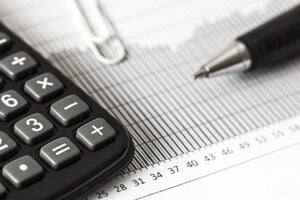By Prof. Bradford Cornell, Cornell Capital Group. Originally published at ValueWalk.

Robinhood traders are widely characterized as the ultimate investing cowboys. These are traders who do not fear risk, but seek it out. They trade options in stocks like GameStop and Tesla because there is insufficient action in the stock itself. Rarely, however, are the valuation implications of the rise such investors spelled out explicitly. To take that step, I make the conservative assumption that Robinhood investors are risk neutral – this means attempt to maximize their profits without regard to risk. They will take any investment on which they expect to make money, even if it means bearing significant risk.
Q4 2020 hedge fund letters, conferences and more
Robinhood Traders And The Mathematics Of Discounting
Finance theory implies that risk neutral investors will discount future profits at the risk-free rate of interest when valuing a company. To take account of inflation, in the discussion that follows everything is stated in terms of real, inflation adjusted dollars. The real, risk-free rate of interest is given by the yield on Treasury Inflation Protected Securities (TIPS). Currently, the yield on the 10-year TIPS is negative, but for practical purposes let’s call it zero. A zero real interest rate implies that the Robinhood traders would not discount future real profits expected to be earned by a company at all. Because companies have an indefinite life, the mathematics of discounting implies that as long as the profits keep pace with inflation, the fundamental value of the company, from the perspective of a risk neutral investor, is infinity.
In the real world, of course, no company is going to have infinite value – even to Robinhood traders. Companies do not last forever and bankruptcy is always a risk. Furthermore, no one expects the real interest rate to remain negative indefinitely. Nonetheless, if the future real profits are discounted at a rate near zero, valuations can quickly get very big. Furthermore, they become extraordinarily sensitive to any change in anticipated earnings growth. If risk neutral investors see expected growth in an exciting new company, they are likely to be willing to pay extraordinary prices for its shares. When Robinhooders say on Reddit that “valuation doesn’t matter” they are close to being right. For risk neutral investor in a world of zero real interest rates, value becomes so unhitched from fundamentals that it virtually doesn’t matter.
There have always been at least some investors in the market who are not averse to risk. What makes today’s market different is that a combination of Covid and repeated rounds of government stimulus has swelled the ranks and the bankrolls of avid risk takers. Mixing the growing numbers of risk neutral investors with a negative real rate of interest is a potent brew. There are few fundamental limits on the possible prices of stocks that stokes the enthusiasm of risk neutral cowboys.
The post What If Robinhood Traders Are Not Risk Averse? appeared first on ValueWalk.
Sign up for ValueWalk’s free newsletter here.



